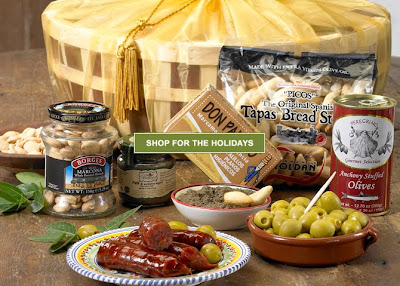Aioli, Alioli, Aglio e Olio, Allium; it all spells garlic to me!
This post combines two of my favorite things: words and food.
It's been quite a while since I last wrote a post in my ongoing series on interesting words as I read through the dictionary. Here was the original idea.

This post arose from a discussion about the difference between aioli and alioli and which came first. It was the wonderfully gifted cooks in our family who began the discussion, but the word- and food-lover in me brought me into the discussion.

It seems that aïoli, French for garlic and oil, from the Provence region of France, contains egg, as well as garlic and oil. So, it is pale yellow and creamy, like mayonnaise. One of many uses for it is as a dip, for sliced, raw vegetables. More info here and here.

Alioli, on the other hand, a sauce from Spain and a word that came from the Catalan language (but ultimately from Latin "allium") contains no egg. Of course, as in many things regarding cooking, that is a matter of opinion, as one can see from this recipe for patatas alioli, one of our favorite Spanish tapas.

Add to this list a favorite from our sojourn in Italy, Aglio e Olio.
 The English A-word for all this garlic wonderfulness is Allium, "a large genus of Liliaceous plants, of which garlic, the onion, leek, chive, shallot, and the British wild flower Ramsons are species," according to the OED [Latin: allium, garlic, of unkn. origin].
The English A-word for all this garlic wonderfulness is Allium, "a large genus of Liliaceous plants, of which garlic, the onion, leek, chive, shallot, and the British wild flower Ramsons are species," according to the OED [Latin: allium, garlic, of unkn. origin]. 
Finally, here's a great recipe for garlic bread, done in the style of one of our favorite Tokyo eateries, Ninnikuya.

Here's a fine recipe for crackers and roasted garlic hummus.
 For (at last count) 26 mouth-watering recipes involving Garlic, check out the Beans Blog, our favorite food blog.
For (at last count) 26 mouth-watering recipes involving Garlic, check out the Beans Blog, our favorite food blog.
Finally, our friends sent us this picture, and although I don't completely understand it, I kind of like it!

























































